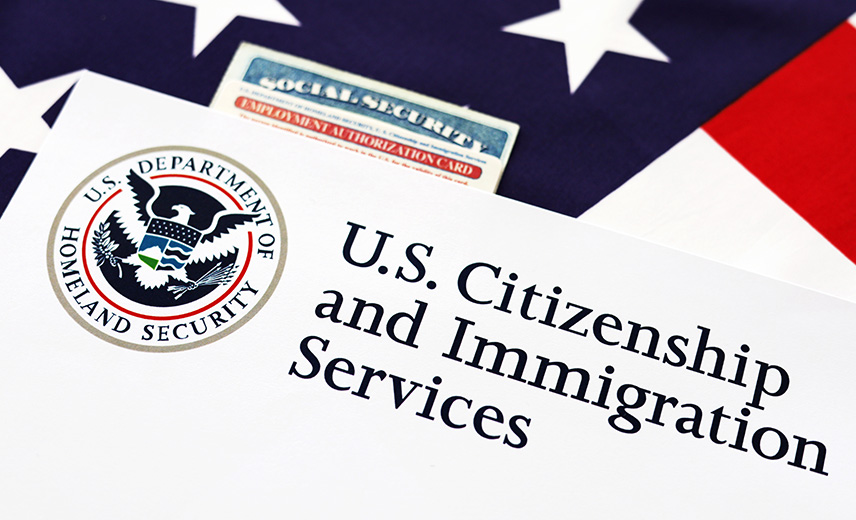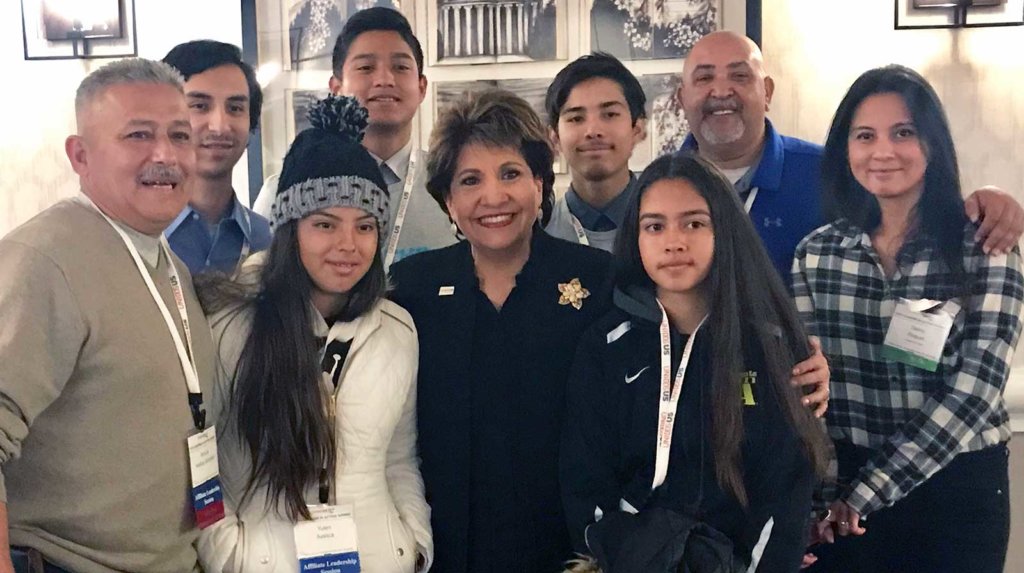Tearing down the second wall: UnidosUS, members of Congress, and immigrant advocates want to know what’s causing the backlog of citizenship applications
During the 2016 election, then-candidate Donald Trump said that a key element of his presidency would be building a wall between the United States and Mexico.
Trump and his administration have indeed already built a wall—but it isn’t a physical barrier. This wall is metaphorical, and it is no less destructive than the one that Trump wants to construct on the southern border of our country.
That wall is the backlog of citizenship applications at U.S. Citizenship and Immigration Services (USCIS).
Keep up with the latest from UnidosUS
Sign up for the weekly UnidosUS Action Network newsletter delivered every Thursday.
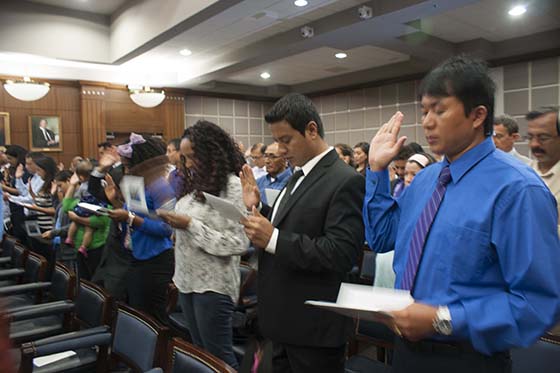
In the last two years, USCIS’s backlog of citizenship applications has increased from 388,832 to 729,400. This represents an 87% increase in the number of applications that have not received adjudication. UnidosUS is joining members of Congress and allies in the civil rights community file a Freedom of Information Request with USCIS, to determine why this backlog of applications has occurred.
WHY THIS BACKLOG MATTERS
Under the Obama administration, it took an average of six months to a year to receive a decision on a citizenship application, and under the Trump administration, there are some states where the average has become 20 months.
“This administration has attacked the immigrant community and said they want to build a wall—and they’ve actually built one,” said Representative Luis Gutierrez of Illinois during a press briefing yesterday with UnidosUS President and CEO Janet Murguía. Also on the call were Representative Zoe Lofgren of California; Peter Schey, Executive Director at the Center for Human Rights and Constitutional Law; and Angelica Salas, Executive Director of the Coalition for Humane Immigrant Rights of Los Angeles, and co-chair of the National Partnership for New Americans.
“If you want to vote in November 2020, you basically have to apply in the next 60 to 90 days!” Gutierrez added.
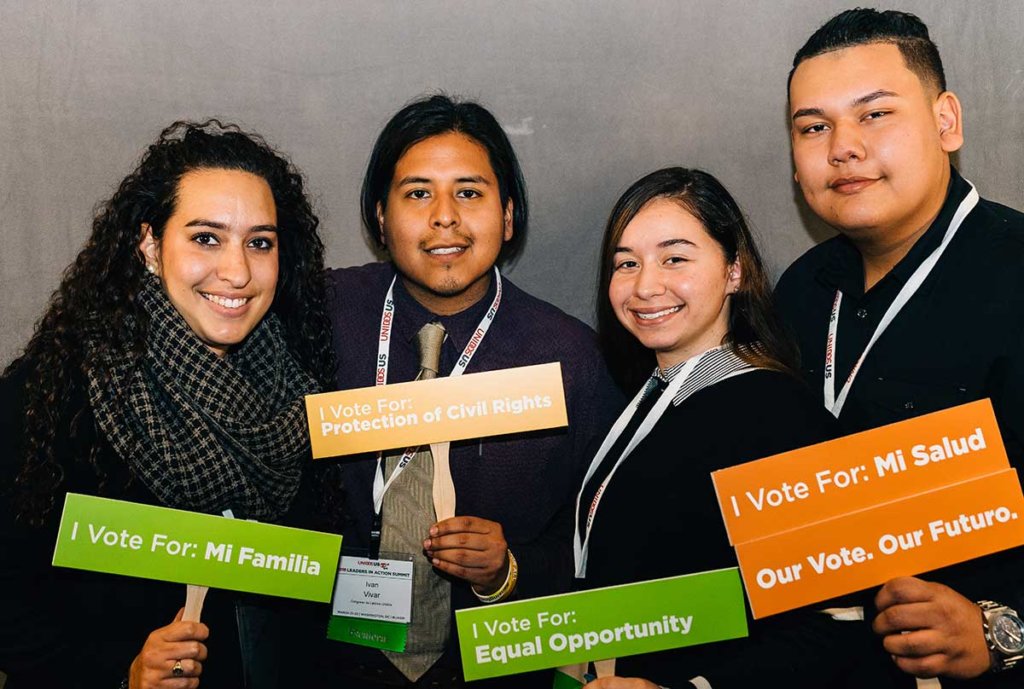
Lofgren explained that USCIS typically sees a surge in citizenship applications in advance of an election. While the increase in applications after the 2016 elections was not typical, it was not met with an increase in resources to adjudicate the applications.
Murguía noted that those immigrants who are putting in their citizenship applications have worked incredibly hard to be able to get their documents in order.
“They take courses in English and Civics and many must save up for months for legal assistance, and to pay the application fee. They are eager to take the oath of naturalization,” Murguía explained.
This backlog is currently preventing eligible immigrants from accessing their right to citizenship as envisioned by the founding fathers, as well as the right to participate in the democracy of their new country. “People want and understand that in the end, the power of this country is controlled through the ballot box,” Lofgren said.
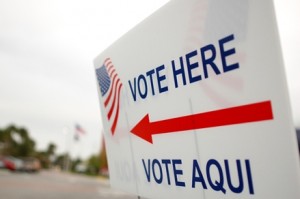
While the participants on the call acknowledged that immigrants filing citizenship applications are eager to participate in our democracy, they also acknowledged that many immigrants are concerned with making sure that they keep themselves and their families safe.
“We’ve seen this administration try to move hundreds of thousands of DACA recipients into undocumented status,” Schey said. While people with DACA are not currently on a pathway to citizenship, there is no denying that moving to end DACA and taking away Temporary Protected Status makes immigrants who were lawfully present undocumented.
“Naturalization is the number one way individuals can be protected from deportation,” Salas said.
But as application times have dragged on at USCIS, immigrants who have been able to do everything right with the law, have worked hard, and have raised the funds necessary to have their application processed remain vulnerable to being locked out of our democracy and out of the country they call their home.
@JMurguia_Unidos @AngelicaCHIRLA @ctr4humanrights @RepZoeLofgren @RepGutierrez demanding that @USCIS be held accountable for denying citizenship for 729,400 immigrants. USCIS can & should do better & can start by lowering citizenship app backlog #TearDownThe2ndWall #NaturalizeNOW
— NPNA (@npnewamericans) July 2, 2018
TEAR DOWN THE SECOND WALL
Without further information from USCIS, it’s very difficult to piece together why this backlog would exist. For example, Gutierrez and Lofgren emphasized that taxpayer money is not used to finance citizenship applications. The money for processing those applications is from lawful permanent residents who may have spent months saving $725 to pay for the citizenship application ($680) and the background check ($85).
If this backlog is not addressed, it will take 25 years for the agency to get back to the number of unadjudicated applications it had under the Obama administration—not counting any new applications it may receive.
It is our responsibility to push for answers from USCIS. These new Americans deserve transparency.
By Stephanie Presch, Content Specialist, UnidosUS
We are joining our colleagues in demanding a full accounting from the @USCIS on why the backlogs of citizenship applications are increasing and in urging USCIS to prioritize reducing the backlogs and processing wait times. #TearDownThe2ndWall
— UnidosUS (@WeAreUnidosUS) July 2, 2018
